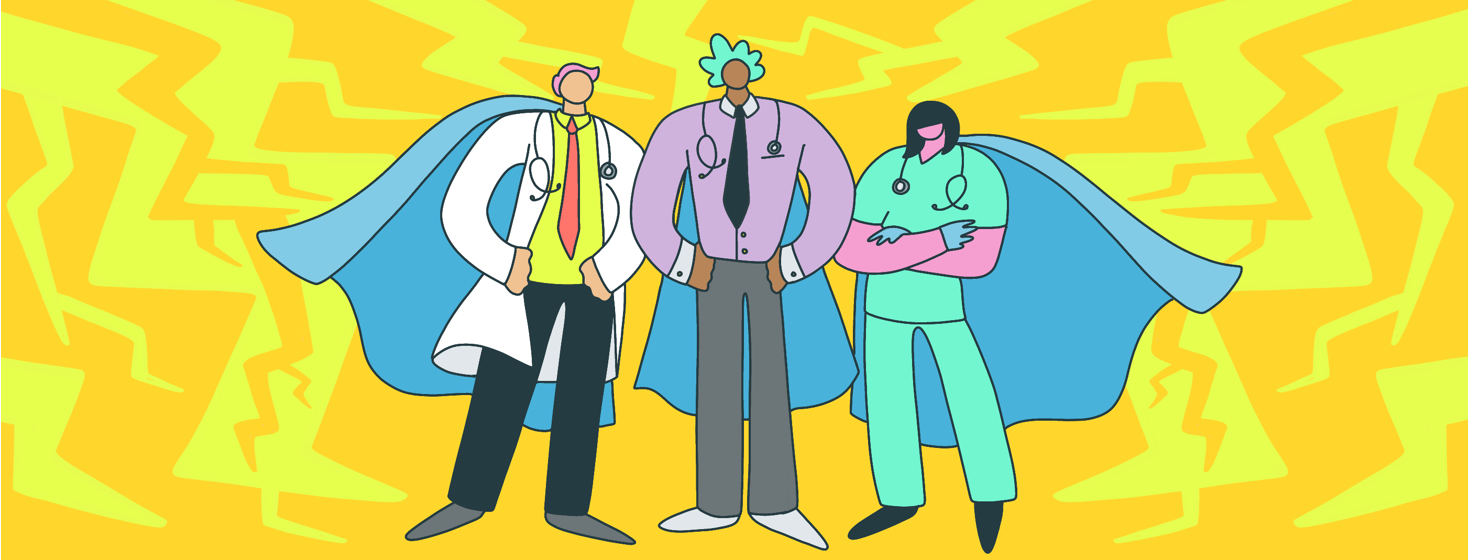3 Things that Saved My Sanity and My Life
One of the drawbacks of being chronically ill is the sheer number of doctors you have to see to manage your care. That alone can make anyone feel lost and overwhelmed. I also know the feeling of being bounced back and forth between doctors in what feels like a complicated game of "telephone." I was over all of it by the time I answered the same questions at my third appointment for the week. No doctor knew what the others were doing. I knew at that moment that I needed to develop a system that got all of my doctors on the same page and communicating with each other. That decision changed everything for me.
Searching for a lupus doctor
The first thing I did was change how I found new doctors. Initially, I found the specialists that I needed through my insurance provider. Some of them were epic failures for me. The doctor-patient relationship is like all your other relationships. It's important that you feel comfortable with your doctors. These are the people that are supposed to help you stay alive and out of the hospital, after all!
I am blessed to have an amazing doctor-patient relationship with a nephrologist that I trust. I found that I had better outcomes when I asked him for physician referrals. One visit, I literally said, "I need a (insert specialty here). Who would you send your wife to?" P.S.A - This only works because I know he really likes his wife. You might ask your trusted doctor, "Who would you see?" I found that I had better odds of fostering a good working relationship with his referrals. The added plus is he usually has their personal numbers in his cell and doesn't mind calling them if I ask him to and sometimes when I don't want him to. He's a snitch, but usually, he's right. I was not pleased when he said I needed to stop drinking coffee and drink more water.
Keeping my doctors organized
Secondly, I got organized. One of the things that would frustrate me when I worked in the emergency department was that I found patients taking the same medication from two different doctors who didn't know it. They sometimes didn't know why they were taking medications or their diagnoses. I would advise them to get a notebook and write their med list, their diagnoses, and any questions they had. It is a huge help to keep everything in one place.
I decided to get a large 3-ringed binder, and dividers became my solution. Each divider is labeled as a section for each of my specialists, one for labs, another section for imaging, and one section for anything that didn't fit into those categories. The first section holds a list of my medication, a list of my confirmed diagnoses, and a separate list of diagnoses being investigated.
My doctors know I always ask for copies of notes, lab results and orders, discharge papers, and anything else I can get my hands on. I keep them in my binder, and I take it with me to each of my appointments. Listen, I cannot tell you how many times that binder has changed the direction of an appointment! The information a doctor may be looking for might be in your binder, and now you don't have to get those labs because you already have them.
I am the boss of my healthcare team
The third thing I did (and this one is super hard) I do not hesitate to fire a doctor. If I find that we really aren't clicking and I'm feeling unheard, I will voice my concerns. Without any improvement or response, I will cancel any and all future appointments and find another doctor. I have also advised my husband and my mother to fire a doctor on my behalf if it is warranted. It may mean that I have to travel to see a good doctor, but I'd rather drive 2 hours one way than to have a doctor that won't listen.
Advocating for myself was a lesson learned the hard way. A few years ago, I had a new cutting-edge procedure done at the main hospital in town. Unfortunately, I was having a really bad reaction to the procedure by the time I got home. My family rushed me to the local hospital. The first doctor I saw had not heard of the procedure and thought I was making it up to get pain medications. He was clearly dismissing my complaints, and when he walked out, I heard him tell the nurse, "she must be some kind of addict."
I lay in pain for hours, and my condition got so bad that I couldn't speak for myself anymore. My mother decided that it was time for her to step in and call my doctor. He immediately called the hospital's medical director to advise them what to do to save my life. A new doctor was sent in, and she gave me the treatment that I desperately needed. If my doctor had not called, I would have died that day because of the prejudgments of the first doctor.
I am my best advocate
I've learned that I am my best advocate! What is working for me may or may not work for you. Just know that you have options. You can ask your doctors to share office notes or have a phone conference with another doctor if needed. Documentation is the gold standard in healthcare. If you keep your documentation with you, it may save you time, energy, and money. You have the right to participate in your care. You have the right to seek out the quality care you want and need.
This is my Lupie journey and I'm going to live it!
Much love,
Cay

Join the conversation